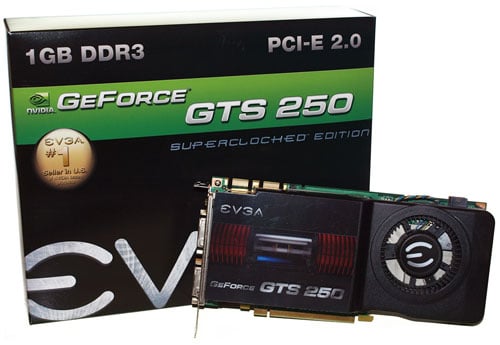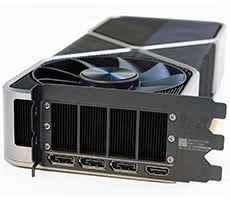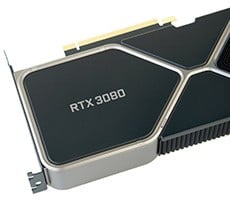NVIDIA GeForce GTS 250 Mainstream GPU
Introduction and Related Info
NVIDIA has gotten a lot of mileage out of their G92 GPU architecture. Starting with the GeForce 8800 GT, which featured a 65nm variant of the G92 GPU, on up through the GeForce 9800 GTX+, which used an updated version manufactured on a more advanced 55nm process. The G92 GPU has been featured on no less than seven different GeForce branded desktop graphics cards, not to mention the slew of mobile GeForces based on the G92 that are also in production.
Although it has been around for quite some time now, NVIDIA is launching yet another graphics card based on the G92 today, the GeForce GTS 250. The GeForce GTS 250's name suggests it is something new, but it is not entirely different from some previous GeForce 9800 series graphics cards. Instead, what NVIDIA is doing today is using the GeForce GTS 250 launch to align more of their product stack with the new nomenclature introduced with the GeForce GTX series, and to introduce a value-priced G92-based graphics card with a 1GB frame buffer. Take a look...

EVGA GeForce GTS 250
|
|
|

Looking closely at the spec list above, you'll note that the GeForce GTS 250 is a lot like a GeForce 9800 GTX+, just with a larger frame buffer and a new name. In terms of the underlying technology behind NVIDIA's G92 family of GPUs, as well as detailed explanations on many of their features, we'd suggest perusing a couple of the following HotHardware articles regarding NVIDIA's previous and current GPU architectures:
- GeForce 8800 GT: G92 Takes Flight
- NVIDIA GPU PhysX Pack Preview
- GeForce 8800 GTS 512MB Refresh
- GeForce 9800 GTX Launch
- GeForce 9800 GX2 and nForce 790i SLI Launch
- NVIDIA Geforce GTX 280 and GTX 260 Unleashed
- GeForce 8800 GTX and 8800 GTS Launch
Our GeForce 8800 GTX launch article goes in depth on NVIDIA's previous generation G80 GPU architecture, which is fundamentally very similar to the G92, save for its wider memory interface, and explains NVIDIA's CUDA GPGPU technology. Also, our GeForce 8800 GT and 8800 GTS 512MB articles cover much of the technology employed in NVIDIA's G92 GPU architecture, and the GPU PhysX Pack Preview details some of the features and capabilities offered by NVIDIA's PhysX physics acceleration technology.






